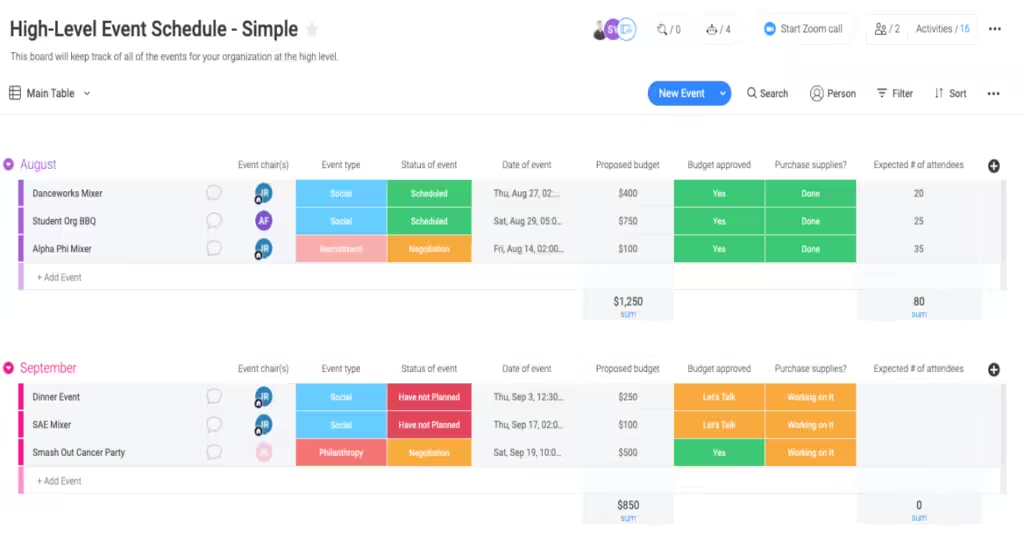Affiliate Marketing
Affiliate Marketing Introduction
Affiliate marketing has become one of the most popular and accessible ways for individuals and businesses to generate income online. At its core, affiliate marketing is a performance-based marketing strategy where individuals, known as affiliates, earn a commission by promoting products or services of a third party. The affiliate earns money whenever their promotion leads to a successful action, such as a sale, click, or lead. For digital marketers, content creators, bloggers, and even small business owners, affiliate marketing provides a low-risk and high-reward opportunity to monetize their online presence without having to create or manage their own products.
The importance of affiliate marketing in today’s digital landscape cannot be overstated. As more people seek passive income opportunities and as e-commerce continues to grow, affiliate marketing has become a key component of many online business strategies. According to recent statistics, affiliate marketing spending in the United States is expected to surpass $8 billion by 2023, demonstrating its strong and continuous growth. Its appeal lies in the ability to earn revenue by leveraging existing audiences through blog posts, social media, email marketing, and other channels.

Commission Structures
Commission structures are one of the most important aspects to consider when choosing an affiliate marketing program, as they directly impact how much an affiliate can earn from their efforts. Different programs offer various types of commission models, with the most common being *Cost Per Sale (CPS), **Cost Per Lead (CPL), and **Cost Per Click (CPC). In a *CPS model, affiliates earn a percentage of the sale every time someone makes a purchase through their affiliate link. This is widely used by e-commerce platforms like Amazon Associates, where affiliates receive a percentage based on the product category.
In contrast, CPL commissions are earned when affiliates refer leads, such as sign-ups or email subscriptions, regardless of whether a purchase is made. This model is common in industries like finance and SaaS. CPC models are less common but can be lucrative for affiliates with high traffic, as they are paid every time someone clicks on their link, even if no purchase or lead conversion occurs.

Affiliate Networks
Affiliate networks serve as a bridge between advertisers (or merchants) and affiliates (or publishers), creating an ecosystem that facilitates smooth partnerships and business growth. These networks provide a centralized platform where businesses can list their products or services, and affiliates can browse through various offers to choose what aligns with their niche and audience. One of the key roles of affiliate networks is tracking affiliate-driven sales or leads through unique tracking links, which ensures that affiliates get proper credit for their efforts. This automation eliminates the complexity of managing multiple affiliate relationships manually, as the network takes care of reporting, payment processing, and campaign management.
Affiliate networks also vet the quality of affiliates, ensuring that businesses partner with trustworthy and relevant promoters, reducing the risk of fraud or low-quality traffic. For affiliates, these networks offer a vast selection of brands and products, allowing them to promote items that resonate with their audience, maximizing their potential for earnings. Popular affiliate networks like Click Bank, Rakuten, and Impact Radius offer analytics tools, marketing materials, and educational resources to help both affiliates and advertisers succeed. By offering a marketplace and tools that simplify operations, affiliate networks provide immense value to both parties, driving growth in the performance marketing industry.

Marketing Tools and Resources
In today’s competitive digital landscape, marketing tools and resources have become essential for businesses aiming to grow their online presence and engage effectively with their audience. From automation platforms to analytics tools, these resources streamline marketing efforts, helping companies save time and maximize efficiency. For instance, email marketing tools like Mailchimp and Convert Kit allow businesses to create, schedule, and track personalized email campaigns, while social media management tools such as Hootsuite or Buffer help automate and optimize posts across multiple platforms. These tools also offer insights into audience behavior, making it easier to tailor content that resonates with customers.

Pros of Affiliate Marketing:
- Low Startup Costs: Affiliate marketing requires little upfront investment, making it accessible to individuals and businesses of all sizes. Affiliates don’t need to create products or manage inventory.
- Passive Income Potential: Once the initial work of setting up a website or content is done, affiliate marketing can generate passive income as people continue to click and buy through the affiliate links.
- Wide Reach: Affiliates can promote products or services to a global audience, expanding the market reach of advertisers beyond their own capabilities.
- Performance-Based: Affiliates only earn commissions based on results (sales, leads), meaning there’s a lower financial risk for advertisers compared to other marketing methods like paid ads.
- Flexibility: Affiliates can choose products that align with their niche or interests, allowing for creative freedom in how they promote them through blogs, social media, or other platforms.
- Diverse Income Streams: Affiliates can promote multiple products from various companies, diversifying their revenue sources and reducing reliance on a single advertiser.
- Measurable Results: With the help of tracking tools and affiliate networks, affiliates and businesses can easily monitor performance, adjust strategies, and optimize campaigns.
Cons of Affiliate Marketing:
- High Competition: Since affiliate marketing is relatively easy to get into, the space is often crowded, making it harder for newcomers to stand out and earn significant commissions.
- Income Uncertainty: Affiliates depend on conversions (sales, clicks) to earn commissions, meaning income can fluctuate based on market demand, seasonality, and other factors.
- Dependence on Advertisers: Affiliates rely on the companies they promote to fulfill orders and maintain product quality. If a company fails to meet customer expectations, it could negatively impact the affiliate’s reputation.
- Limited Control: Affiliates have no control over the product, pricing, or customer service, which may lead to customer dissatisfaction if issues arise that the affiliate cannot address.
- Commissions Can Be Low: Some affiliate programs offer low commission rates, especially for popular items, making it challenging to generate substantial income without a high volume of traffic or conversions.
- Compliance Issues: Affiliates must adhere to legal and ethical guidelines, such as disclosing affiliate links to avoid misleading customers, which can be complex for those unfamiliar with advertising regulations.
- Payout Delays: Many affiliate programs have long payment cycles, meaning affiliates may have to wait weeks or even months to receive their earnings after a sale is made.
…
Conclusion
to generate income online, leveraging the reach of digital platforms without the need for large startup investments. Its performance-based nature ensures that both affiliates and advertisers benefit, making it a win-win model. However, like any business strategy, affiliate marketing comes with its challenges. The potential for high competition, reliance on advertisers, and fluctuating income can make it difficult to achieve consistent results. To succeed, affiliates must invest time in understanding their target audience, choosing the right products, and creating engaging content that encourages conversions.
Affiliates who master the art of building trust with their audience and aligning with quality products tend to see the most success. It’s essential to continuously adapt, staying on top of marketing trends and refining strategies based on performance metrics. The flexibility of affiliate marketing allows marketers to explore different niches and approaches, offering diverse streams of income, but it requires dedication and patience to build sustainable results.


